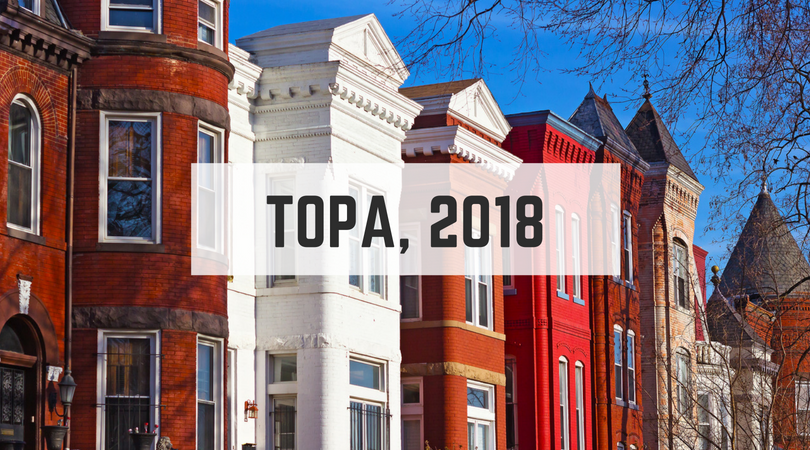Spring is historically the season with the greatest number of properties under contract in the DC metro area, which means now is a great time to take advantage of this liquidity and put property on the market. Owners and investors who are ready to cash out—whether for retirement or to change their mix of investments—are in a position to benefit from steady increases in home prices.
Unfortunately for owners of rental properties, taking advantage of the spring market can be much more complicated due to obstacles presented by the Tenant Opportunity to Purchase Act (TOPA). There’s good news for those ready to sell single-family rental properties, though.
The DC City Council recently passed an amendment to TOPA that exempts single-family homes. While this exemption requires Mayoral and Congressional approval, which could take six months or so to obtain, it’s important to have a clear understanding of how TOPA and the Single Family Home Exemption Amendment Act of 2018 could affect the clients you work with.
In general, TOPA requires owners of rented properties to give their tenants a good faith offer to buy before sealing the deal with any other purchasers. Sometimes tenants, acting through tenant associations, leverage their rights to purchase an entire building. Tenants can also assign those rights to a third-party, such as a developer, who would enjoy right of first refusal. It’s common for tenants to take advantage of these rights, exploiting loopholes and eventually causing headaches for the property owners.
“If every law has a loophole, then every loophole has a lawyer waiting to exploit it,” says Aaron Wiener, who wrote a series of articles about TOPA and other aspects of property law for the City Paper’s “Housing Complex.” In February 2015, his article “Opportunity Cost” reported on efforts by property owners, tenants, and their representatives to work with, and specifically around, TOPA. And this desire to work around TOPA could mean trouble for your real estate transactions.
Thankfully, while tenant rights are still a factor to consider, the new Single-Family Home Exemption means single-family rental property owners can avoid some of the challenges of TOPA when deciding to sell.
If you’re thinking about selling a DC rental property, whether multi-unit or single-family, consider consulting with a settlement company first. Sellers with up-to-date knowledge of the legal landscape are in a much better position to maximize their return on investment and close in a timely manner. With regulations like TOPA in place, a consultation before you begin the selling process will ensure you don’t run into any unexpected hurdles on the road to a successful (and profitable) real estate transaction.
To get a plain-English description of how TOPA works and what property-sellers and their prospective tenant-buyers need to do to comply with the law, read this article from DistrictRe.com.
To get a detailed look at the D.C. laws, including TOPA, that govern selling apartments, condos, co-ops and other rental properties, visit the Department of Housing and Community Affairs website.
The D.C. Office of the Tenant Advocate (OTA) has published flow charts that detail each of the three classes of TOPA transfers. They’re a quick way to learn what you need to know about this important piece of local real estate law.


Nice article!